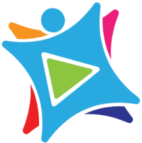Puzzles are a great family activity or solo pastime. Whether your puzzle of choice is a 1,000-piece jigsaw, crossword puzzle in Sunday times, a wood brain teaser, or a 3D puzzle, doesn’t really matter because all puzzles share one key element, they power our brain and challenge our thinking.
The popularity of puzzles today in the digital age is part of a very long history. Puzzles have existed in various forms since the time of the ancient world. Riddles are mentioned in the Bible, puzzle jugs date to the 1700 BC in Cyprus, and magic squares were introduced in China around 700 BC.
In modern times, jigsaw puzzles were invented by John Spilsbury in 1767, crossword puzzles were first published in newspapers in 1913, and the Rubik’s Cube was created in 1974.
The types and varieties of puzzles are almost endless.
Puzzles are an important learning and educational toys for toddlers and young children as they provide many skills and cognitive learning benefits and opportunities but did you know that adult brains can benefit from puzzles too?
When you are studying from a book, lots of people go straight to the end to look for the answers. But thats not my style. For me, the most enjoyable part is the puzzle, the process of solving, not the solution itself.
– Erno Rubik
Benefits of Puzzle-solving.
Below, discover few benefits of this educational toy for kids development along with some practical tips.















